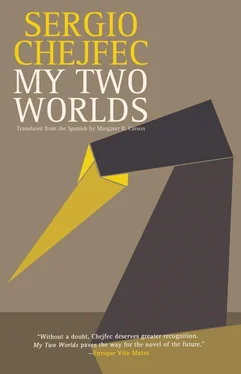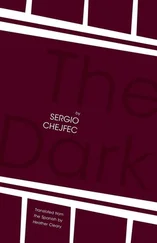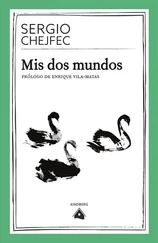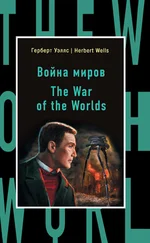I told myself that perhaps it would be a good thing to keep on listening, and as I listened more closely I detected a certain spiritual hedonism in the voice of the man who was afraid, which made me wonder whether he might be some kind of guru or preacher, maybe a rural mystic given to changeable opinions. Very likely, I thought, he was a guest at the book fair. I was intrigued by the form of his eloquence, his nonchalant air that made no distinction between what was central and what was secondary in what he was talking about, a trait that perhaps reflected a certain insecurity or else rote memorization. In the end a rather unexpected and above all revealing thought occurred to me: I had only to use the remote control to see his face, but I didn’t because for a moment I dreaded that I would see my own image on the screen. Perhaps the anonymous messenger was about to reap his reward, because the impact the man who was afraid would have on me would be the most resounding success of his campaign. I imagined myself speaking like that from that moment on, and, still worse, writing like that, too, forever following the most haphazard thoughts in a tortuous way. But I understandably wanted to stop thinking like this, so I turned off the television, gathered my things, and went out in search of my coffee.
Generally, when I walk I look down. The ground is one of the most revealing indicators of the present condition; it is more eloquent in its damages, its deterioration, its unevennesses, and irregularities of all sorts. I’m referring to urban as well as rural ground, difficult or congenial. And I’m specifically referring to the ground of paths, to ground altered by humans in general, because ground in the abstract, the ground of the world, speaks different, near-incomprehensible languages. Walking is, in part, a kind of superficial archaeology, which I find greatly instructive and somehow moving, because it considers evidence that’s humble, irrelevant, even random — the exact opposite of a scientific investigation. It’s evidence that, because of its unimportance and its secondary nature, restores a way of inhabiting time: one is an eyewitness to the anonymous, to what history can’t classify, and simultaneously witness to what will survive with some difficulty. And for that reason, when I walk on paths I’ve been inclined to leave behind faint, minimal marks — the proverbial initials or the name drawn in the dirt with a stick, ephemera that vanish quickly from the ground or from walls, like sodden footsteps on a rainy day or shoe prints. Not because I believe someone will decipher them in my wake, but because the action implies an innate impulse, one can only hope to leave fleeting traces. Similarly, I regard the random things that make up the path as simple and moving: the blending of varied materials, the wear and tear of age, the former uses, etc., that are at times revealed and which transport me to the lethargic scale of banal discoveries, even predictable at times, yet transcendent because they evoke the secondariness I just mentioned. In fact, one of my greatest weaknesses are those paths that are sometimes traced onto sidewalks and public stairways, the result of countless steps of people in a given place, like an invisible mechanism.
The shaded path I was following would soon yield me its first surprise, something like a second aid in forgetting all about the city I’d left behind me a few meters back. The path opened onto a fairly large clearing, roughly fifty meters wide, where there was a labyrinth (the name I prefer to give it) of greenery, or a circular garden, formed by dwarf hedges, barely knee-high, that delineated narrow, sinuous paths and the odd allée, itself interspersed with flowering shrubs, probably rose bushes, proportionally spaced. Across from me, on the path that encircled the garden, were two bougainvilleas near-bursting with vivid purple blooms. I remember it because their brilliant color stood out from the light green of the stand of trees and the dark green of the hedges. The garden also contained several main paths with a few granite benches, very low to the ground, where visitors could presumably rest.
When I emerged from the darkened path, the light was so dazzling I had to squint. At first the garden seemed deserted, and the silence, because it related to an open space, suggested an absence, I could say an emptiness, or rather, time entirely undefined. Gradually the idea took hold of me to avoid encountering anyone, a thought that occurs to me more and more frequently of late. I stood still and looked at the garden; I wanted to familiarize myself with it, to enjoy the perspective, I don’t know, to enjoy the experience of one of those suspended moments associated with picturesque landscapes, apparently definitive in their composition, or at least conclusive because of the idea of harmony, no matter natural or artificial, that they meant to convey; so I found myself standing attentive and motionless to one side of the labyrinth, when all of a sudden something happened: a few meters away from me a shadow materialized that I hadn’t noticed until that moment. Some thing or being was hiding in one of the central walks; I couldn’t see it clearly at all because of the glaring light, but also because the bench where “that something” was installed was so close to the ground that even the dwarf hedges blocked my view. At first I thought it was a parcel, or more precisely a bundle of forgotten clothes, or some strange animal, asleep and dressed in human clothes, or all three at once. But the next instant I saw it move again; the shape suddenly stood up and walked off, as if unaware of my presence. I couldn’t, however, be sure.
I imagined it might be a student from the nearby university, since the figure’s backpack, which was pretty large, seemed to hold books or notebooks. What I had taken to be a flattened bundle may well have been the figure’s back, or his prone body: he had very likely been reading, or sleeping, or maybe he was weeping or cursing, there was no way to know, or was feeling crushed, or simply bitter and hopeless.
It’s happened to me in different circumstances: I believe I’m alone, in a deserted place and completely isolated and on my own, when an unexpected motion or careless glance will suddenly make me realize, alarmed, that somebody else is present. I don’t care for those visitors or witnesses who have arrived beforehand and are slow to make themselves known. Even if they did come first, and thus have certain prerogatives — which ones, I don’t know — I eye them warily, as if they’d burst in upon my peace, interlopers or nuisances spoiling my contemplation or enjoyment, if indeed that exists. Conversely, I keep an open mind toward those who arrive after I have, because they make me feel like an explorer who for a brief moment is accompanied before taking up his path once more.
As I watched the student receding into the distance, I felt somewhat perplexed, or almost frustrated. At first I thought it was due to the manner in which I’d encountered him, to its abruptness, or to my surprise, etc., but then, when he disappeared from sight, my discomfiture turned to befuddlement and I began to doubt his very existence. The memory was fresh: first, the indiscernible shape, the dark clothes, the quick stretch of the limbs, before he presumably returned to classes or went home, surely necessary after such a long rest; I had seen all of that, and nonetheless couldn’t verify that it had happened. Because the truth is that, just as I’ve described, on several occasions I’ve been present at a similar scene, as an “intruder-host,” and it’s also happened that at other times I’ve had the experience of sighting ghosts, amphibious or spectral beings — erratic figures, fleeting or lazy, that arrive, are present or pass by, but always ignore me.
Читать дальше












